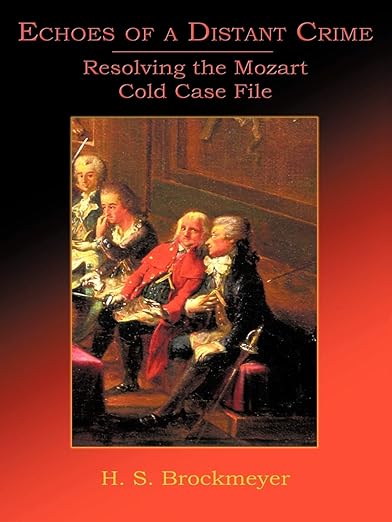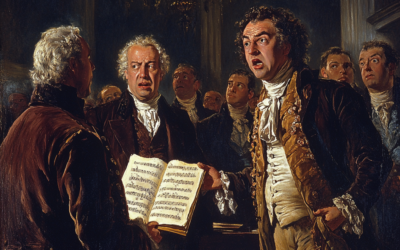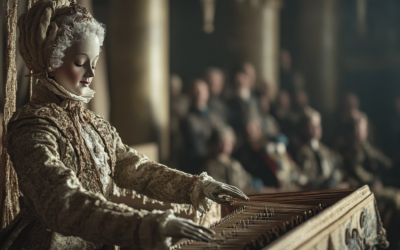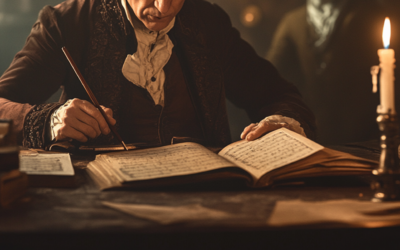MozartrazoM
Georg Nissen and the Missing Notebooks
Article written by H. S. Brockmeyer
After Mozart’s death, his widow, Constanze, found a steadfast partner in Georg Nikolaus von Nissen, a Danish diplomat who dedicated his life to preserving the composer’s legacy. Nissen not only compiled an extensive biography of Mozart but also uncovered and safeguarded many of his compositions. Driven by a deep admiration for Mozart, Nissen even embarked on a secret investigation into the mysterious circumstances of the composer’s death, a pursuit that reflects his unwavering commitment to uncovering the truth.
“Nissen certainly realized the dangers of exposing the murder should it have been
perpetrated by a powerful group with deep connections to the Court.”
Echoes of a Distant Crime: Resolving the Mozart Cold Case File
After the death of the legendary composer Wolfgang Amadeus Mozart, his widow, Constanze, remarried in 1809 to Georg Nikolaus von Nissen, a Danish diplomat and passionate admirer of Mozart’s work. This union not only provided stability for Constanze and her children but also set in motion one of the most remarkable efforts to preserve Mozart’s legacy.
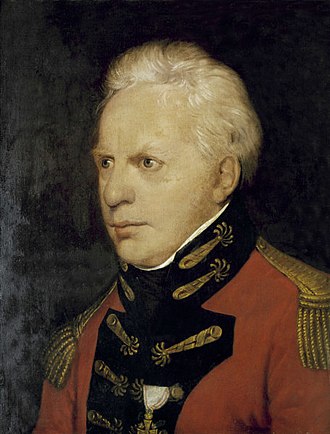
Georg Nicolaus Nissen after painting by Jagemann.
Nissen was a man of diverse talents—a poet, amateur musician, and, above all, a devoted supporter of Mozart. His deep respect for the composer led him to compile an extensive biography of Mozart, a monumental work that spanned over 900 pages and was published posthumously in 1829. Nissen’s dedication to this project consumed much of his life, as he meticulously collected documents, letters, and musical scores, often working late into the night.
Yet, Nissen’s efforts went beyond mere biography. He discovered hundreds of Mozart’s compositions hidden in a closet in Constanze’s apartment, which he carefully cataloged and sold, ensuring that these masterpieces would not be lost to history.
Interestingly, Nissen also harbored suspicions regarding the mysterious circumstances surrounding Mozart’s death. In his final years, he pursued a private investigation, corresponding with close friends and seeking to uncover what he believed was a potential murder plot. His determination to reveal the truth was so profound that, in a secret letter to his stepson Wolfgang, Nissen urged him to continue this investigation after his death, warning of the dangers involved and even involving the King of Denmark as a witness to his testament.
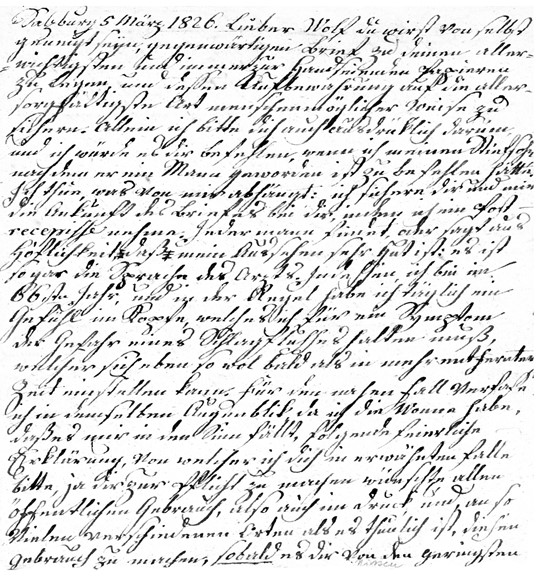
Georg Nikolaus von Nissen’s Letter in 1826 to Step-son Wolfgang Xaver
to Expose Mozart’s Violent End
Image reproduced with permission from the Mozarteum Foundation.
Nissen’s legacy is a testament to his unwavering dedication to Mozart and his relentless pursuit of the truth. Though his final investigation into Mozart’s death remains inconclusive, his contributions to preserving and promoting the composer’s work are invaluable, making him an integral figure in the history of classical music.
To delve deeper into this fascinating story about Georg Nikolaus von Nissen and his connection to Mozart, you can download the full document from the link below.
You May Also Like
When the Myth Collapsed
Vienna exposed the myth: La Finta semplice was riddled with errors, and Wolfgang’s supposed opera genius was nothing more than Leopold’s fabrication. With their reputation in ruins, father and son turned to Italy, hoping to rewrite history.
The London Notebook and the Vienna Disaster
Far from the myth of a flawless young genius, Mozart’s London Notebook reveals musical struggles and guided exercises, while the Vienna opera disaster proved that his father played a far greater role in his compositions than legend would have us believe.
Versailles, Vanity, and the Pursuit of Prestige
Leopold Mozart’s letters transformed his son’s European tour into a carefully staged fantasy—filled with exaggerated encounters, fabricated royal admiration, and a relentless pursuit of social prestige. But how much of it was real?
The Fabricated Childhood of Mozart
The legend of young Mozart’s divine genius crumbles under scrutiny, revealing a childhood dictated by Leopold’s ambition, carefully constructed myths, and a relentless pursuit of fame at the expense of genuine artistic education.
The Man Behind the Myth
Leopold Mozart’s legacy has been shaped by myths and hagiographies, but his letters reveal a man more concerned with financial gain and self-promotion than artistic integrity. Was he truly a devoted father, or simply an opportunist?
Constanze vs. The Catholic Church
For over two centuries, scholars have debated the circumstances surrounding Mozart’s burial. Constanze Mozart’s supposed inability to mark his grave, the confrontation with the Catholic Church over funeral masses, and the baffling disappearance of Mozart’s body all contribute to a mystery stranger than fiction. Did a powerful group keep her silent? And what really happened to Mozart’s remains?

